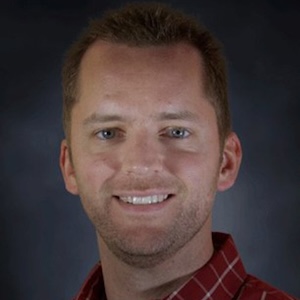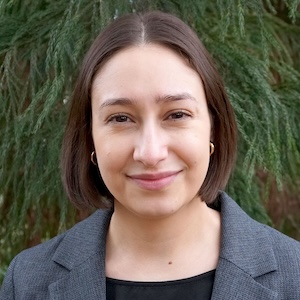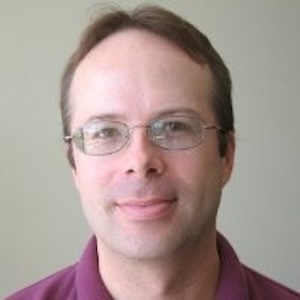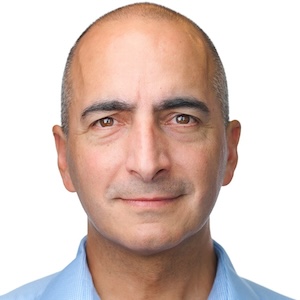- Tuesday, September 10
- Wednesday, September 11
Tuesday, September 10#
Fireside Chat with the National Science Foundation#
- Moderator: Tanya Berger-Wolf (The Ohio State University)
- Activity page: https://indico.cern.ch/event/1364455/contributions/6092994
A panel of the NSF program directors bringing the NSF perspective of the history and the future of the data revolution, particularly in the context of AI revolution.
Dr. Sylvia Spengler (National Science Foundation)#
Director, Division of Information and Intelligent System (IIS), National Science Foundation
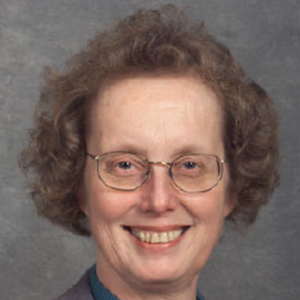
Dr. Sylvia Spengler is program director in Division of Information and Intelligent System (IIS) within the CISE Directorate at the National Science Foundation. She also served as program officer for the Biological Databases and Informatics in BIO/DBI. Prior to joining NSF, she was a Director of Department of Energy (DOE) Human Genome Program Field Operations. She served as Co-Director of the Program in Mathematics and Molecular Biology at the University of California, Berkeley, Lawrence Berkeley National Laboratory.
Her many honors include Senior Fellow of the American Cancer Society, and National Institutes of Health (NIH) Postdoctoral Fellow. As a member of DOE ELSI panels, she has been involved in evaluating the ethical, legal and social implications of human genome research. Dr. Spengler’s many publications include co-authorship of the DOE’s Primer of Molecular Biology.
As part of her work with the Human Genome Project Dr. Spengler has been involved in many types of public outreach including lectures given to college students, judges, and appearances on public television.
Dr. Chaitanya Baru (National Science Foundation)#
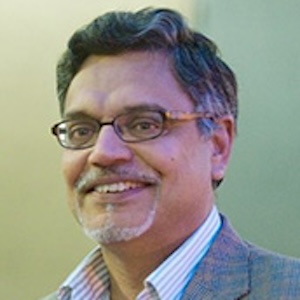
Dr. Chaitanya Baru is Senior Advisor in NSF's new Technology, Innovation, and Partnerships (TIP) Directorate. He joined NSF in October 2022 after a 25-year career at the San Diego Supercomputer Center, University of California, San Diego. He has previously been on assignment at NSF as Senior Advisor for Data Science in the CISE Directorate (2014-2018) and as Senior Advisor for the NSF Convergence Accelerator (2019-2021). As Senior Advisor for Data Science, he co-chaired the NSF Harnessing the Data Revolution Big Idea (HDR) and played a leadership role in the NSF BIGDATA program. He helped initiate the HDR Data Science Corps program and was an advisor to the NSF Big Data Regional Innovations Hubs and TRIPODS programs. He was a lead organizer of the inter-agency workshop on Open Knowledge Network, which led to establishment of Track A in the Convergence Accelerator. As Senior Advisor in the Convergence Accelerator (CA), he was a member of the original team that designed and launched the CA program, and was involved in the ideation and creation of the early CA Tracks including Track A: Open Knowledge Network, Track B: AI and Future of Work, Track D: Data Sharing for AI, and Track F on misinformation. Some of the programs he is involved with and projects he is overseeing include the Proto-OKN program, Responsible Design, Development, and Deployment of Technologies (ReDDDoT) program, Industries of Ideas: Measuring the impact of Research Investments in Regional Jobs and Economy project (https://iris.isr.umich.edu/tip/) and the Innovation, Culture, and Creativity project (https://icc.ucla.edu).
Dr. Amy Walton (National Science Foundation)#
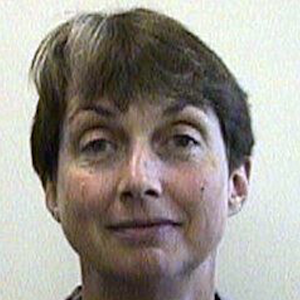
Dr. Amy Walton is Deputy Director for the Office of Advanced Cyberinfrastructure at the National Science Foundation, contributing to cross-foundational activities in which NSF has a leadership role, such as capacity building in computer and information science and engineering.
As a Program Officer, she led the Harnessing the Data Revolution initiative, emphasizing data-intensive research in science and engineering; Cyberinfrastructure for Sustained Scientific Innovation, focused upon the availability and interoperability of science data cyberinfrastructure; and EarthCube, an integrated geoscience research program.
Dr. Walton also serves as Co-Chair for the Working Group on Big Data within the national Networking and Information Technology Research and Development (NITRD) Program. The 24 NITRD member agencies invest approximately $6.5 billion annually in R&D programs. NITRD is the primary source of federally funded R&D in advanced information technologies in computing, networking, and software.
Previously, Dr. Walton led the Earth Science Technology Office for the National Aeronautics and Space Administration, and directed a series of advanced research programs for the processing, analysis, management and visualization of Earth and space science data at the California Institute of Technology Jet Propulsion Laboratory. In 2010 she was awarded the NASA Exceptional Service Medal for incorporating science guidance into technology development programs.
She received a Ph.D. from Princeton University.
Dr. Raleigh L. Martin (National Science Foundation)#
Program Director, Directorate for Geosciences National Science Foundation
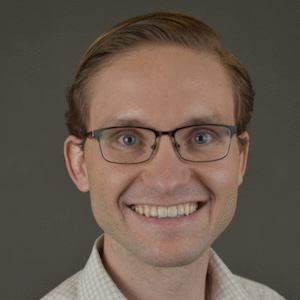
Dr. Raleigh L. Martin is a Program Director in the Division of Earth Sciences (EAR) in the Directorate for Geosciences (GEO). Raleigh’s NSF portfolio includes programs related to open science, data management, and computing in the geosciences. In EAR, he leads the Geoinformatics program, which supports cyberinfrastructure for Earth Sciences research and education. He is also a member of the GEO Cyberinfrastructure (GEO CI) Incubator in GEO’s Division of Research, Innovation, Synergies, and Education (RISE), which supports cross-cutting efforts to promote open, inclusive, computationally enabled, and data-driven research and education in the geosciences, including programs focused on open science and innovative uses of AI (artificial intelligence) for the geosciences. Prior to his current role, Raleigh served as the 2019-20 an American Geosciences Institute (AGI) Congressional Geoscience Fellow in the U.S. House of Representatives, and prior to that as a 2017-2019 American Association for the Advancement of Science (AAAS) Science & Technology Policy Fellowship in NSF/GEO. Raleigh’s research background is in wind- and water-driven processes that shape the Earth’s surface, including postdoctoral research at the University of California, Los Angeles (UCLA), and a Ph.D. from the University of Pennsylvania.
Dr. Cheryl Eavey (National Science Foundation)#
Dr. Cheryl Eavey is program director of the Methodology, Measurement, and Statistics (MMS) Program in the Division of Social and Economic Sciences at the National Science Foundation. She has been at the Foundation since 1993. In addition to MMS, Dr. Eavey has been involved in a number of cross-program and cross-directorate NSF activities, including Harnessing the Data Revolution and Cyberinfrastructure for Sustained Scientific Innovation. She has a B.S. degree in mathematics and political science from Valparaiso University, and an M.A. and Ph.D. in political science from Michigan State University. Dr. Eavey has served on the faculty of the Political Science Department at Florida State University, the Business School at Washington University in St. Louis, and the U.S. Business School in Prague (Czech Republic).
Wednesday, September 11#
The Role of AI, Computing and Data Infrastructure in Community Engagement#
- Moderator: Anand Padmanabhan (University of Illinoia, Urbana-Champaign)
- Activity page: https://indico.cern.ch/event/1364455/sessions/559581/#20240911
A panel conversation on the future of AI in relation to technology, computing, education, and inclusion, including experts across interdisciplinary domains spanning academia and industry.
George Percivall (GeoRoundtable: Spatial Web Foundation; IEEE Standards)#
Distinguished Engineering Fellow for the Spatial Web Foundation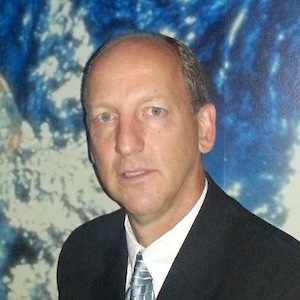
George Percivall is a Distinguished Engineering Fellow for the Spatial Web Foundation. He was formerly Chief Technical Officer of the Open Geospatial Consortium and is currently a member of leadership team for the IEEE Computer Society AI Standards Committee.
Dr. John Fonner (Texas Advanced Computing Center)#
Dr. John Fonner earned a Ph.D. in Biomedical Engineering at the University of Texas at Austin, where he used a blend of experimental and computational techniques to study binding interactions between peptides and conducting polymers for implant applications in the nervous system. He joined the Life Sciences Computing group at TACC in 2011 and has served on a number of projects that help life sciences researchers leverage advanced computing resources, both through training and through the development of better tools and cyberinfrastructure.
---Ashley Atkins (San Diego Supercomputer Center)#
Ashley Atkins is Chief of State at the San Diego Supercomputing Center. As a member of the Director’s Office, Atkins provides support for and offers guidance on developing the strategic direction of the center and manages day-to-day operations needed to achieve the center’s mission. Prior to her position as SDSC’s chief of staff, Atkins was the executive director for the U.S. National Science Foundation (NSF)-funded West Big Data Innovation Hub at UC Berkeley. The collaborative effort, co-led with SDSC and the University of Washington, supports projects and partnerships across academia, industry, nonprofits and government agencies. As one of four regional big data hubs funded by the NSF, the West Hub offers a platform for an array of collaborations to take place in response to western U.S. needs related to big data innovations and ecosystems. As part of this work, Atkins led the West Hub’s sustainability planning to position core initiatives for success and long-term impact beyond the current funding period. arlier in her career, Atkins was awarded a Fulbright grant to conduct research on the water resources shared between Bulgaria and Greece. She also previously worked as a research scientist at the New Mexico State University (NMSU) New Mexico Water Resources Research Institute, where her work focused on understanding the interconnections between human and hydrologic systems.
Dr, Brett Bode (National Center for Supercomputing Applications)#
Dr. Brett Bode is Assistant Director of the National Center for Supercomputing Applications. Dr. Bode received a BS in Chemistry and Physics in 1993 from Illinois State University and a Ph.D. in Physical Chemistry in 1998 from Iowa State University. His thesis in Theoretical Chemistry focused on enhancing computational chemistry via enhanced methods such as a new ECP code allowing analytic second derivatives and through a better interface via my [MacMolPlt](http://www.scl.ameslab.gov/~brett/MacMolPlt) program.
In December 1998, Dr. Bode joined the Scalable Computing Laboratory at Ames Laboratory as an Assistant Scientist. In September 2000 he was promoted to Associate Scientist, and in 2007, he was promoted to Scientist. His research in the SCL was focused on delivering more usable computing cycles to scientific applications. In particular, his work examined two significant problems on today’s parallel computing systems. First is communication performance through technologies such as OpenFabrics. Second is the management software for parallel computer systems including node configuration and batch systems.
In September 2008, Dr. Bode joined the National Center for Supercomputing Applications at the University of Illinois. At the NCSA I started as the manager of the system and tools software development for the Blue Waters project. In 2012, Dr. Bode took the role of division director for the newly formed Advanced Digital Services Directorite.
Dr. Nhan Tran (Fermi National Accelertor Laboratory)#
Director of the Real-Time Processing Systems Division
Dr. Nhan Tran is currently Director of the Real-Time Processing Systems Division at Fermilab. He completed his undergraduate degree in physics from Princeton University in 2005 and his Ph.D. from Johns Hopkins University in 2011, working on the compact muon solenoid (CMS) experiment at the Large Hadron Collider (LHC). He continued his work on the CMS experiment as a postdoctoral researcher at Fermilab. Tran’s research focus is on using accelerator-based experiments to search for new phenomena. He made significant contributions to the discovery and characterization of the Higgs boson at the LHC. He has worked on techniques and tools at the LHC to broadly enhance the physics capability: advancing the deployment of jet substructure tools, developing novel pileup mitigation techniques, and establishing tools to employ and accelerate machine learning in trigger electronics and computing. He has been involved in original analyses at the LHC to search for light dijet resonances and explore Higgs couplings at high momentum. Dr. Tran is a recipient of the URA Tollestrup Award, the APS Henry Primakoff Award, and the DOE Early Career Award.
Workforce Development and Education from Data Science Corps#
- Moderator: Eric Sokol (National Ecological Observatory Network (NEON), Battelle)
- Activity page: https://indico.cern.ch/event/1364455/sessions/559583/#20240911
This panel features representatives from five NSF-funded Data Science Corps (DSC) projects, each focused on harnessing data science to address real-world challenges while advancing education and workforce development. The panelists will share their experiences and insights on how their projects are making a significant impact in both academic and community settings.
Dr. Francisco Iacobelli (Loyola University Chicago)#
Dr. Francisco Iacobelli’s research focus is at the intersection of human-computer interaction, equitable AI and health disparities. In particular, intelligent tutoring systems and virtual agents that are purposefully designed for low-literacy Latino populations. Dr. Iacobelli is an associate professor with a dual appointment to the departments of Health Informatics and Data Science, and the department of Surgery at Loyola University Chicago. Iacobelli is affiliated to the Center for Advancing Safety of Machine Intelligence (CASMI) as well as the Medical Association for the Latino Advancement (MOLA). He obtained his Ph.D. in Computer Science from Northwestern University, a Ms. Sc. from DePaul University and his undergraduate degree from Universidad Diego Portales in Santiago, Chile.
Dr. Fernando Moreu (University of New Mexico)#
Associate Professor, Department of Civil, Construction and Environmental Engineering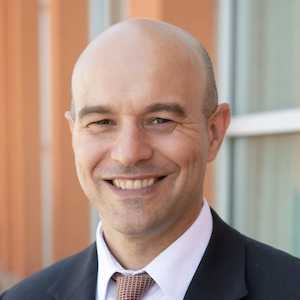
Dr. Fernando Moreu is an Associate Professor at the Department of Civil, Construction, and Environmental Engineering (CCEE) at the University of New Mexico (UNM).He is the founder and director of the Smart Management of Infrastructure Laboratory (SMILab). Dr. Moreu’s research interests include structural dynamics and control, structural health monitoring, wireless smart sensor networks, cyber-physical systems, computer vision, augmented reality, unmanned aerial systems, bridge engineering, and aerospace operations. Dr. Moreu received his MS and PhD degrees in structural engineering from the University of Illinois at Urbana-Champaign (2005 and 2015, respectively). Dr. Moreu is the current Secretary of the ASCE Engineering Mechanics Institute (EMI) Technical Committee in Structural Health Monitoring and Control (SHMC) (2023-2026) and also the current secretary of the Society for Experimental Mechanics Technical Division of Dynamics of Civil Structures (2023-2025).
Dr. Yu Liang (University of Tennessee, Chattanooga)#
Associate Professor, Department of Computer Science and Engineering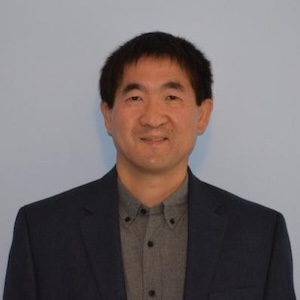
Dr. Yu Liang is a Professor in the Department of Computer Science and Engineering at the University of Tennessee at Chattanooga. His research, funded by various agencies, spans a wide range of topics, including big data and cloud computing, machine learning and artificial intelligence, quantum computing, high-performance computing, multiscale and Multiphysics modeling and simulation, numerical linear algebra, and biomedical engineering. His work has been published in prestigious journals, books, book chapters, and symposium proceedings. Dr. Liang also serves on the editorial boards of seven international journals.
Dr. Amanda Phillips de Lucas (Jacob France Institute)#
Director, Baltimore Neighborhood Indicators Alliance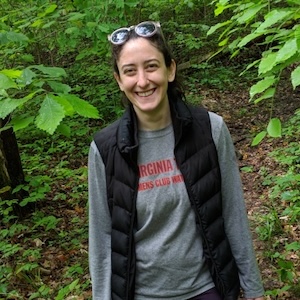
Dr. Amanda Phillips de Lucas is the Director for BNIA-JFI. Prior to this role, Dr. Phillips de Lucas worked at the Cary Institute of Ecosystem Studies as a Postdoctoral Fellow. In 2018, she received her Ph.D. in Science and Technology Studies from Virginia Tech. She also has degrees from Virginia Tech (MS), NYU Gallatin (MA), and Bennington College (BA). Her dissertation examined how activists and community groups in Baltimore used technical data to protest urban interstate construction in the late 1960s and 1970s. This research was published as a chapter in Justice and the Interstates: The Racist Truth about Urban Highways (Island Press, 2023), which she also co-edited. She is a Mayoral appointee to Baltimore City’s Workforce Development Board where she co-chairs the data committee and serves on the executive council.
Dr. Mark Daniel Ward (Purdue University)#
Professor of Statistics and (by courtesy) Mathematics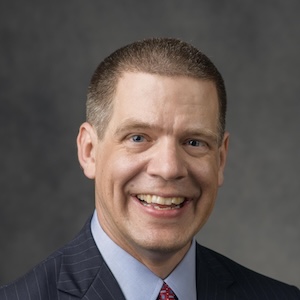
Dr. Mark Ward is a Professor of Statistics and (by courtesy) of Agricultural & Biological Engineering, Computer Science, Mathematics, and Public Health at Purdue University. My research is in probabilistic, combinatorial, and analytic techniques for the analysis of algorithms and data structures. Dr. Ward is also interested in data science, science of information, game theory, and large-scale computation. He currently serve as Executive Director of [The Data Mine](https://datamine.purdue.edu).

